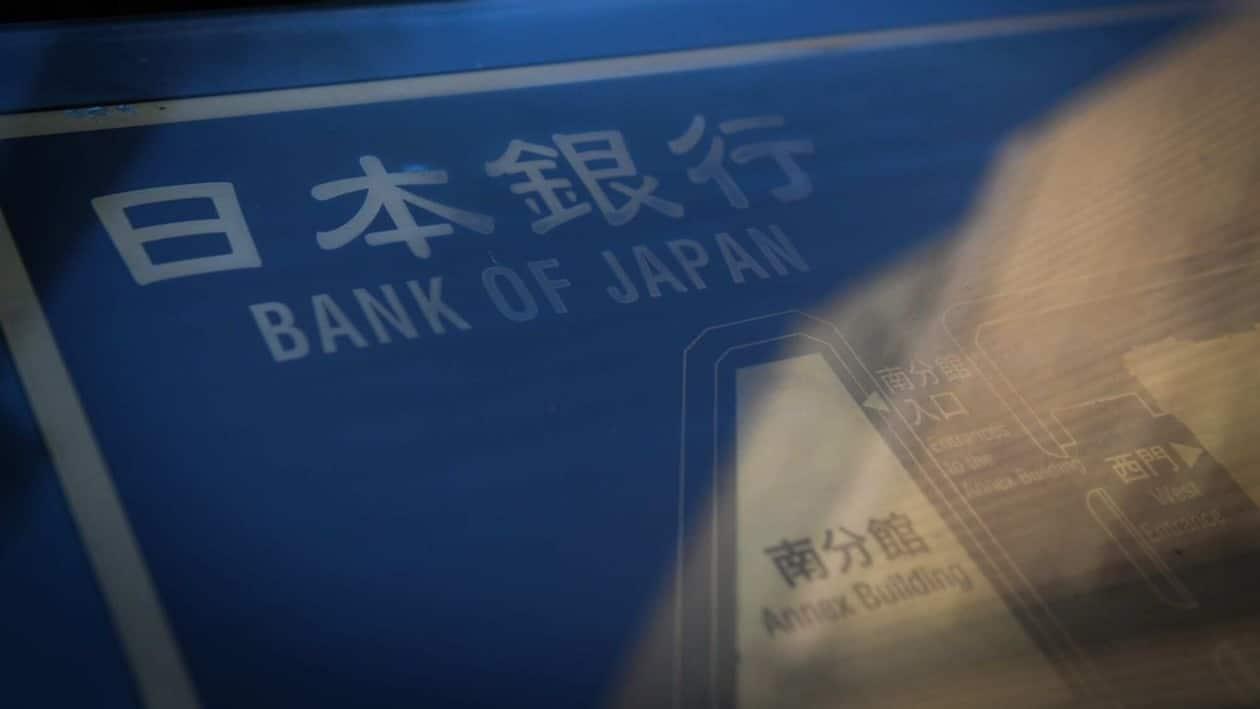(AP) — Even as the Federal Reserve and the world’s other central banks raise interest rates to try to curb inflation, the Bank of Japan has stood firm.
Since 2016, Japan's key interest rate has been minus 0.1%. The world’s third-largest economy has been battling deflation, or a continuous downward spiraling of prices, for years. So, at a time when surging prices prevail in much of the world, Japan also is facing inflationary pressures, but on a much more modest scale.
Low interest rates are designed to make borrowing cheaper, encouraging investment and spending. Your hard-earned money in the bank won’t be earning much interest.
The big question is: What will the Bank of Japan, which is holding a policy meeting Thursday and Friday, do next?
WHAT ARE OTHER CENTRAL BANKS DOING?
The Fed has embarked on aggressive monetary tightening to rein in inflation that is at multi-decade highs. Last month, the U.S. central bank raised its benchmark short-term rate for the third straight time to a range of 3 percent to 3.25 percent, its highest level since early 2008.
The rate started the year basically at zero, after central banks worldwide slashed interest rates and carried out other measures to counter the economic impact of the pandemic.
Some analysts expect the Fed to raise its overnight rate by three-quarters of a percentage point next month, the fourth such increase. That’s triple the usual amount and would bring the rate up to a range of 3.75% to 4%.
Many other central banks also are raising rates. They've also scaled back or ended other monetary stimulus, such as purchases of government bonds and other assets to help put more money into their economies.
WHAT ABOUT INFLATION?
Japan’s inflation is still a lot lower than in the U.S., where it’s been hovering at above 8%, and many other countries.
Years ago, when inflation was hovering near zero, Bank of Japan Gov. Haruhiko Kuroda set an inflation target of 2%, hoping that the threat of higher prices would prompt businesses and consumers to spend more, sooner so that the economy would attain what he called a “virtuous cycle" of sustainable growth.
Now, inflation in Japan is about 3%, mostly from rising costs for imports of oil and gas, industrial components, food and other products. Japanese manufacturers and retailers have been raising prices at a slower pace than elsewhere.
Kuroda has said Japan needs to keep interest rates ultralow to support a fragile recovery from the pandemic. Inflation is likely to fall below 2% in the coming fiscal year, he said.
WHAT ABOUT CURRENCY COMPLICATIONS?
Various factors affect currency markets, but the widening gap between interest rates, especially between the U.S. and Japan, means that the value of the dollar has risen sharply as investors seek higher yields and a “safe haven" from market turmoil.
The heavy selling of yen for U.S. dollars has left the dollar at its highest level against the yen in three decades, now at about 150 yen.
A weak yen makes imports whose prices already are inflated still more costly. And swings in exchange rates add to uncertainties for corporations and policymakers.
Conversely, a cheaper yen is a plus for inbound tourism, enticing travelers who have dollars with more spending power. It also boosts earnings of Japanese exporters like Toyota Motor Corp. and Nintendo Co., when their profits are translated into yen.
In late September, the government confirmed the BOJ had bought yen to help support the currency, the first time it had moved to prop up the yen in more than two decades. It reportedly did so again on Friday. Analysts expect more interventions if the yen drops too drastically.
WHAT’S WILL THE BOJ DO NEXT?
The Bank of Japan has quietly cut back on some of its asset purchases and doubts are growing about its stance of sticking to a negative benchmark interest rate, according to Takenobu Nakashima, an analyst at Nomura Securities Co.
But no one is expecting quick drastic change. Nakashima suggested the end of Kuroda’s second five-year term, which comes in April, could offer an opportunity for gradual change.
When pressured recently in parliament by an opposition lawmaker to step down immediately over “a failed monetary policy,” Kuroda staunchly refused.
“That it has failed is not factually correct,” Kuroda said. “I have no intention of resigning.”
WHAT'S THE OUTLOOK?
Despite the currency pressures, Kuroda has remained cautious at a time when fears are deepening that the Fed and other central banks might raise interest rates too quickly or too far, stifling business activity and causing recessions.
Japan’s economy grew at an annual rate of 2.2% in the April-June quarter, as consumer spending rebounded with the gradual lifting of coronavirus restrictions. The country has reopened to tourism, and business is returning more or less to normal.
Bill Mitchell, a professor of economics at the University of Newcastle in Australia, believes Japan's approach works well, even if it might look like “a crazy system" from the outside. Even after a property bubble burst in the early 1990s, the country kept unemployment relatively low, he said in a Zoom interview.
Raising interest rates will do nothing to solve Japan's serious, long-term challenges, such as a shrinking and aging population, the main reason its economy is growing so slowly.
“I think the Bank of Japan is doing exactly the right thing,” he said.
